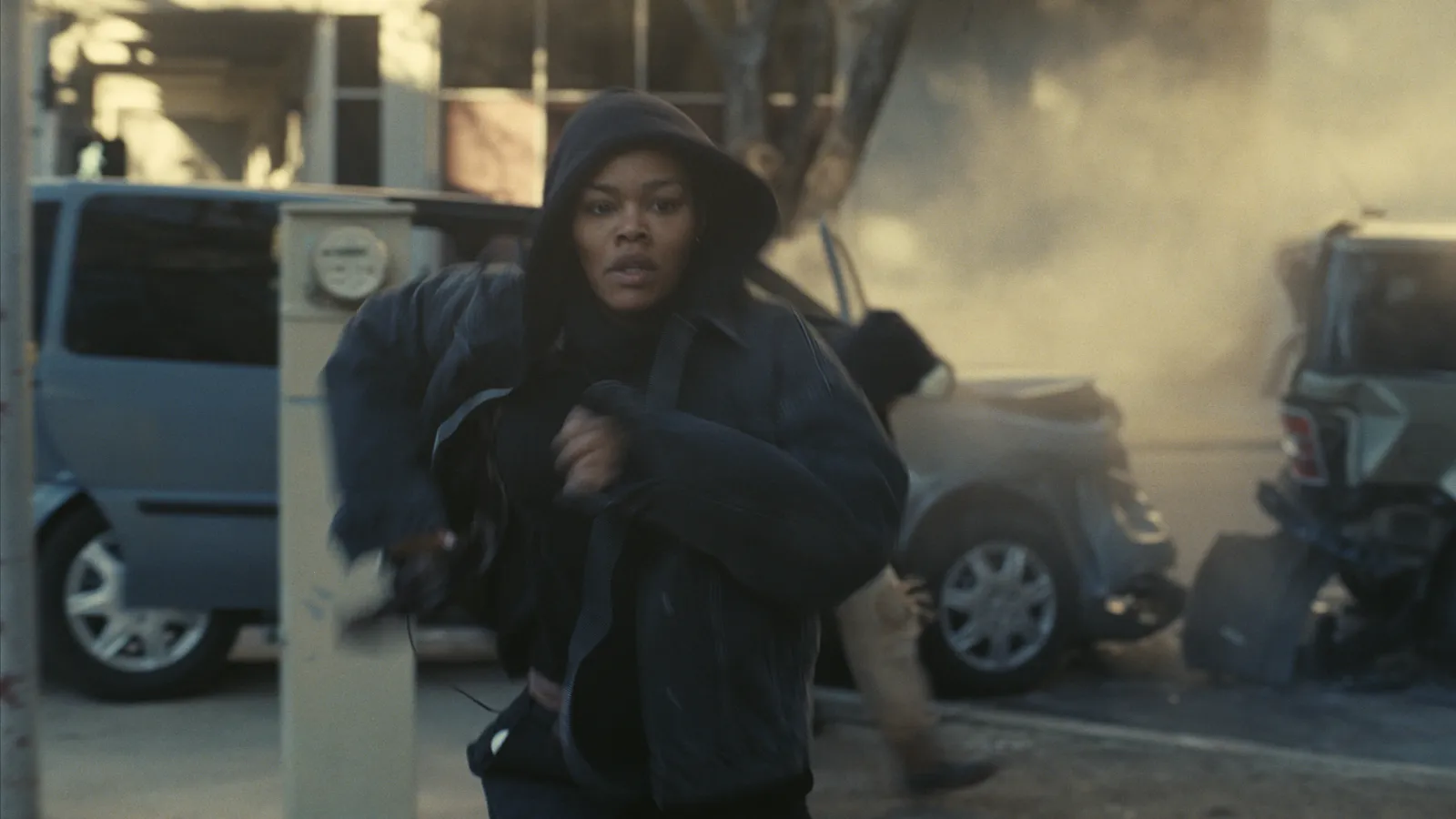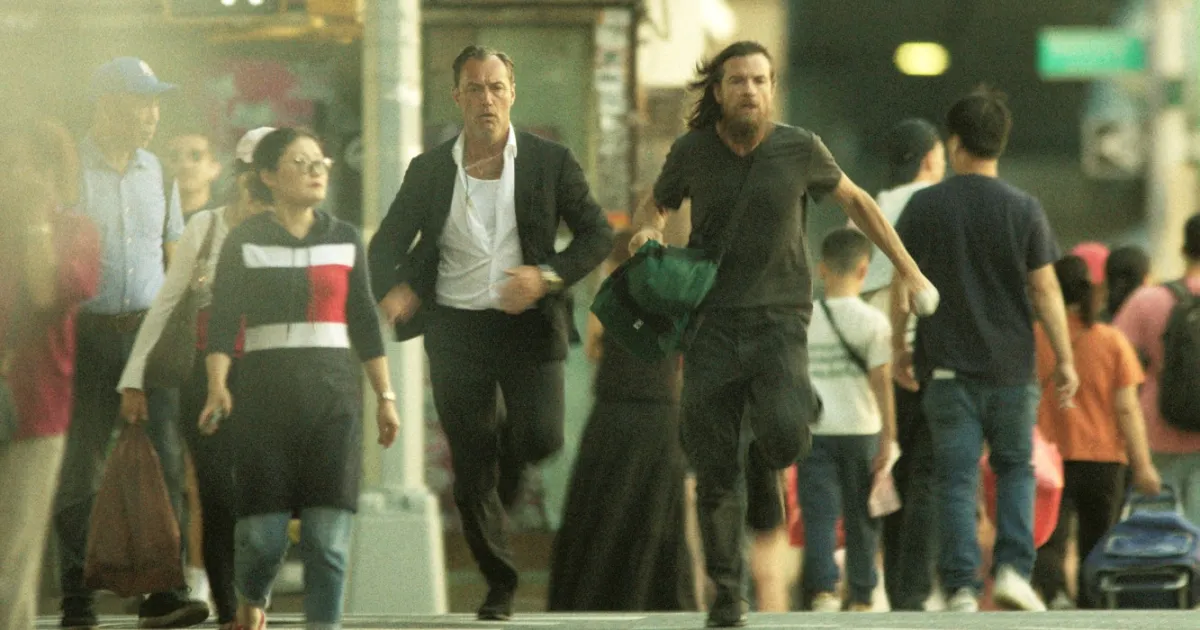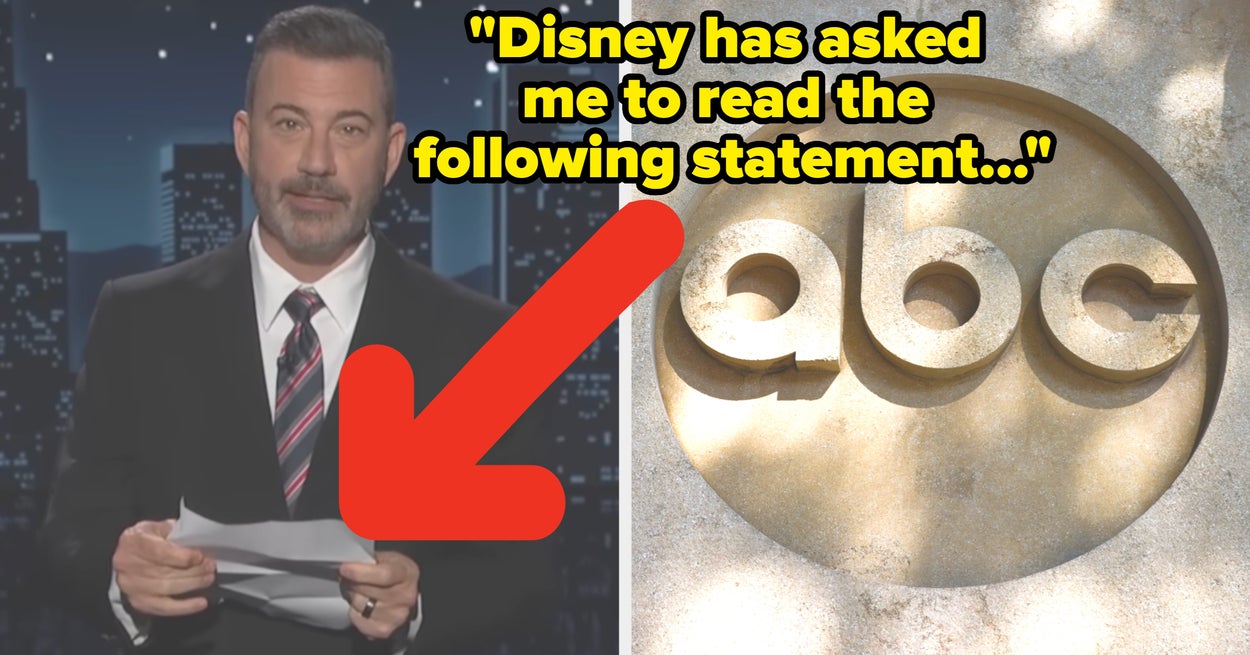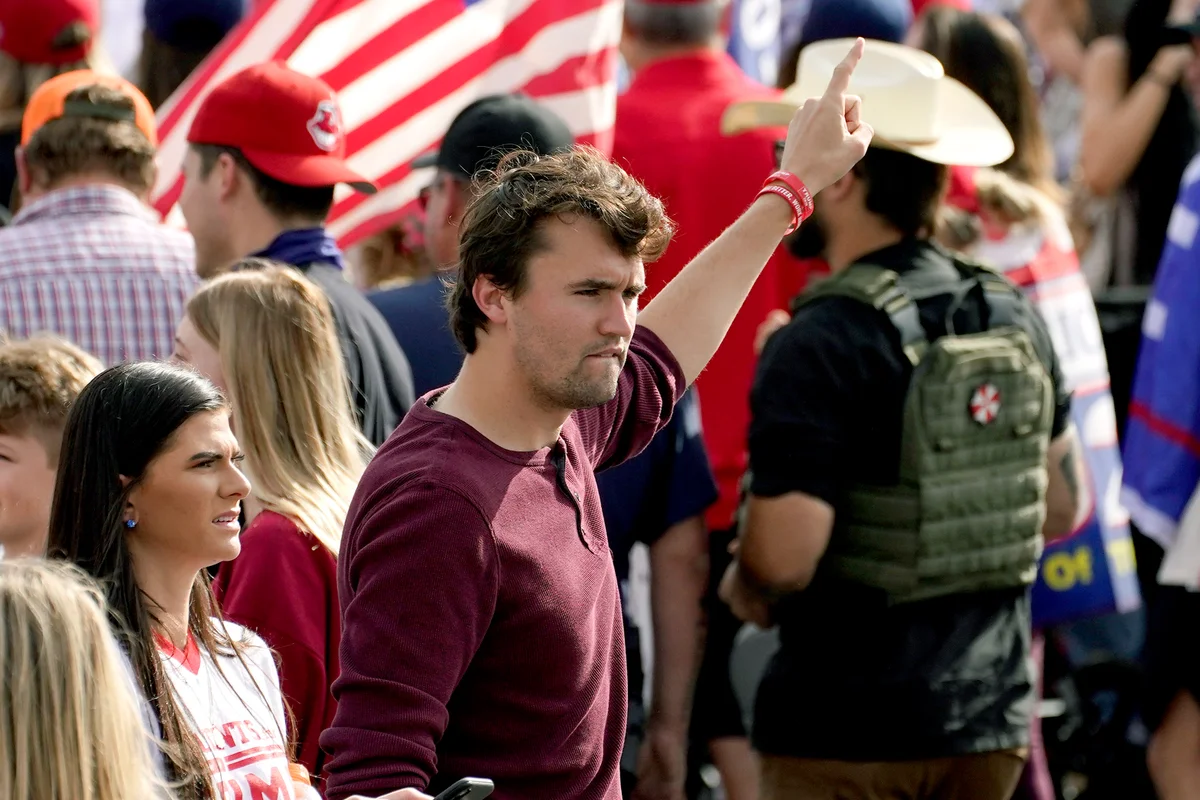
One Battle After Another, the sui generis 162-minute epic that’s now in wide release, is many movies in one. It’s writer-director Paul Thomas Anderson’s fiendishly inspired riff on postmodern master Thomas Pynchon’s 1990 novel Vineland; it’s a riveting action flick; it’s a hilarious stoner comedy; it’s a treatise on the true purpose of revolutionary politics; and it’s a profoundly moving meditation on parenthood and middle age. You can read about all of this in the rave reviews this film has gotten across the board, many anointing it as the movie of the year (ours is here), or in the delightful interviews that Anderson and his principal star, Leonardo DiCaprio, have given.
But One Battle After Another is something else, too: a movie that’s powered by music. In a moment when rock biopics, some better than others, are making bank and packing multiplexes, Anderson offers another, much deeper way of using music on the big screen. Here’s why One Battle After Another is one of the best music movies in recent memory — no small feat in a year that already gave us Sinners. And beware, there are more spoilers in here than there are strands in DiCaprio’s ponytail.
The Cast
This film’s cast is absolutely packed with musicians. To start with the one you can’t miss, Teyana Taylor gives a dynamite performance in the movie’s opening third as freedom fighter Perfidia Beverly Hills (partner to DiCaprio’s Bob Ferguson, and mother to stunningly talented newcomer Chase Infiniti’s Willa Ferguson). Taylor rose to fame in the 2000s, when she was still in her teens, as the choreographer of Beyoncé’s “Ring the Alarm” video; she scored a novelty-ish hit a couple years later with “Google Me” before beginning a long partnership with a pre-disgrace Kanye West’s G.O.O.D. Music. Her 2018 album K.T.S.E. was one of the most notable R&B releases of the past few years, and she released a very good album called Escape Room just this summer. Taylor has shown true A-list charisma across all those projects, and casting her as the magnetic center around which the film revolves even when she’s nowhere to be seen was a masterstroke.
Editor’s picks
But that’s not all! The supporting cast features three more musicians, each used to great effect as key members of the French 75, the militant group to which Taylor and DiCaprio’s characters belong. R&B trendsetter Dijon, who has collaborated with Justin Bieber and Mk.gee, plays Talleyrand, the old comrade who comes through for Bob at a crucial (and very funny) moment midway through the film. Shayna McHayle, known to rap fans as New York MC Junglepussy, plays a revolutionary with that very same nom de guerre; you won’t forget the scene where she participates in a bank robbery, nor the later dialogue concerning her in a conversation among some truly vile white supremacist/neo-fascist bastards. And Alana Haim, whose band just put out an excellent breakup album called I Quit, plays fellow traveler Mae West, whose final scene is among the film’s most effective action sequences.
The Needle Drops
Anderson has always known how to deploy a song at just the right moment in his films — think of Aimee Mann’s “Wise Up” in Magnolia, or “Sister Christian” in Boogie Nights — and One Battle is no exception. The scene where Steely Dan’s 1972 song “Dirty Work” plays as a dazed and defeated Bob tokes up before a parent-teacher conference couldn’t be more perfect. Nor could the one where Sheck Wes’ 2017 hit “Mo Bamba” blares through the gym at a high school dance, or the one where the Shirelles’ 1962 single “Soldier Boy” soundtracks a freaky scene between Taylor and Sean Penn’s comically uptight military man Steven J. Lockjaw. And if you catch a Spanish-language lyric at one point referencing Teyana Taylor’s character, you’re not mistaken: That’s “Perfidia,” a 1939 tune by Mexican songwriter Alberto Domínguez. (In a nice touch that Pynchon obsessives will dig, Domínguez’s works also include a song titled “Frenesi,” which lent its name to the equivalent character in Vineland.)
Trending Stories
The Plot Devices
A major plot device in One Battle has to do with the elaborate revolutionary passwords that Bob forgets once he goes underground and devotes his life to raising Willa and getting zooted in a big old bathrobe. These aren’t simple one-word skeleton keys — they’re long, catechistic question-and-answer sequences that French 75 members have to recite together to prove they are who they say they are. There are a bunch of these, but one that we hear again and again, in both comic and dramatic scenes, comes from the lyrics to the radical poet and proto-rapper Gil Scott-Heron’s 1970 classic “The Revolution Will Not Be Televised”: “Green Acres, Beverly Hillbillies, and Hooterville Junction will no longer be so damn relevant…” It’s a clever callback to a status-quo-challenging moment of the past, and something that any fan of Scott-Heron’s pioneering work will appreciate.
Related Content
The Score



